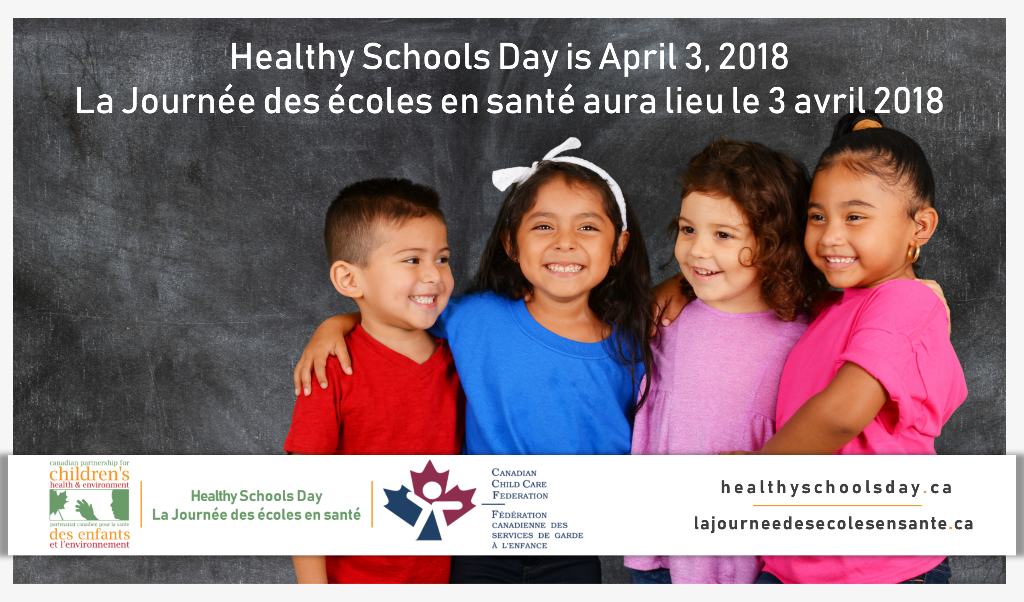This Healthy Schools Day, April 3rd, the Canadian Partnership for Children’s Health and Environment (CPCHE) and the Canadian Child Care Federation (CCCF) will launch a national petition urging mandatory action on radon in schools and child care programs across the country. The Rule Out Radon petition is accessible at www.healthyschoolsday.ca.
Erica Phipps, CPCHE’s Executive Director explained why: “To reduce the exposure of children to the dangers of radon gas, this Healthy Schools Day we are asking parents, educators, students — and anyone concerned with the well-being of Canada’s children — to make their voices heard by signing the Rule Out Radon petition.”
Radon exists in all regions of Canada and is the number one cause of lung cancer among nonsmokers. Formed by the gradual breakdown of uranium found in rocks and soil, radon is a radioactive gas that can seep through foundations and build up to harmful levels indoors. Since radon is both colourless and odourless, the only way to know if radon levels are too high inside a home, school or other building is to test for it. Testing is simple and inexpensive. If elevated levels are found, the problem can be fixed.
Despite some recent progress, most jurisdictions in Canada still do not require radon testing in schools and child care programs.
“Radon exposure is a well-known and avoidable cancer risk that may be present in schools and child care settings at levels considered unsafe by Health Canada,” said Phipps. “We would not send our children to schools with exposed asbestos, or where the water has not been tested for safety. So why allow children to spend time in schools and child care programs not checked for high levels of radon?”
According to CAREX Canada, only four of Canada’s 13 provinces and territories have ensured that all schools within their jurisdictions have been tested for radon at some point in the past decade (see below). Only Yukon has legislation that now requires testing.
The extent to which testing has taken place in child care facilities is largely unknown. Recent policy announcements by the Yukon, Alberta, and BC Interior Health Authority to require testing in child care programs suggest the issue is starting to garner the attention it deserves.
“The well-being of children attending child care programs across Canada, and the women and men who work in them, must be a priority. Radon focused regulations and licensing need to explicitly make testing mandatory in the jurisdictions that are lagging behind,” concluded CCCF CEO Don Giesbrecht.
View the full release and backgrounder
Source: Randee Holmes, Canadian Partnership for Children’s Health and Environment (CPCHE)







